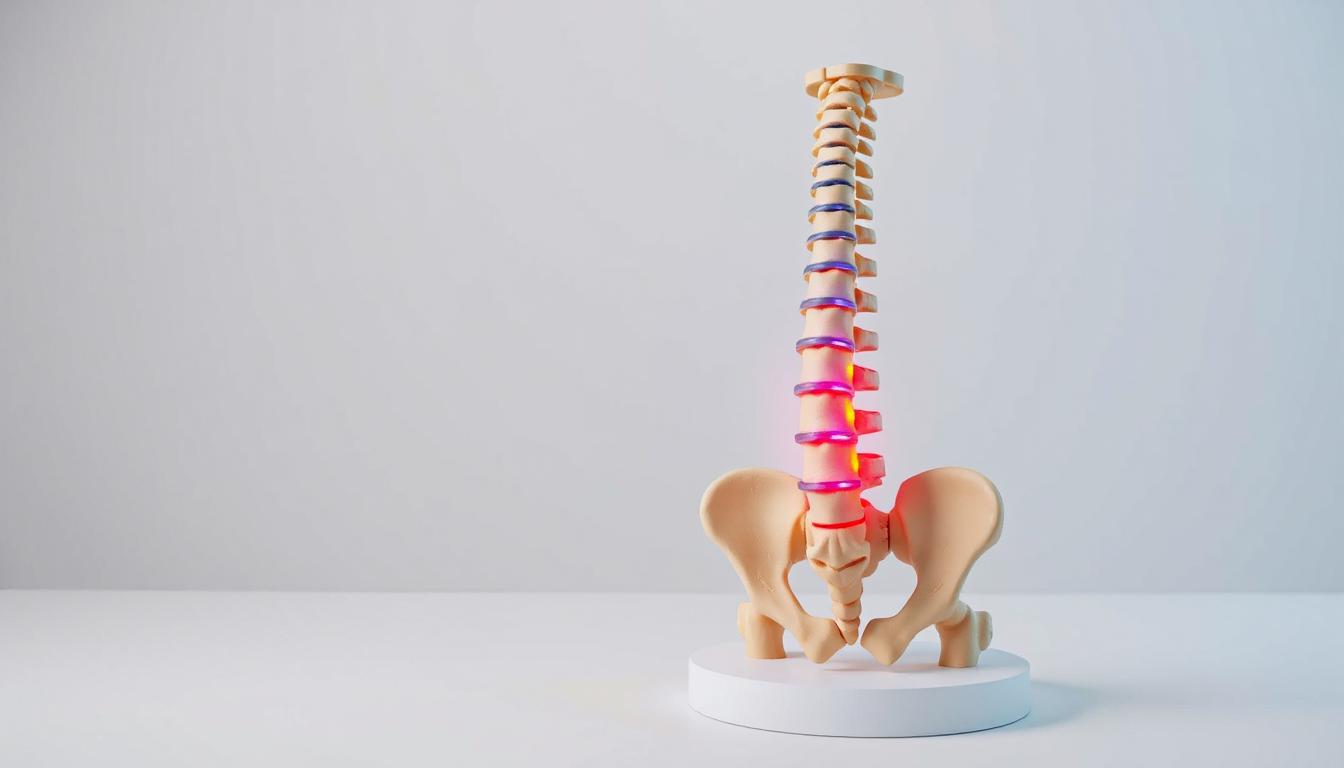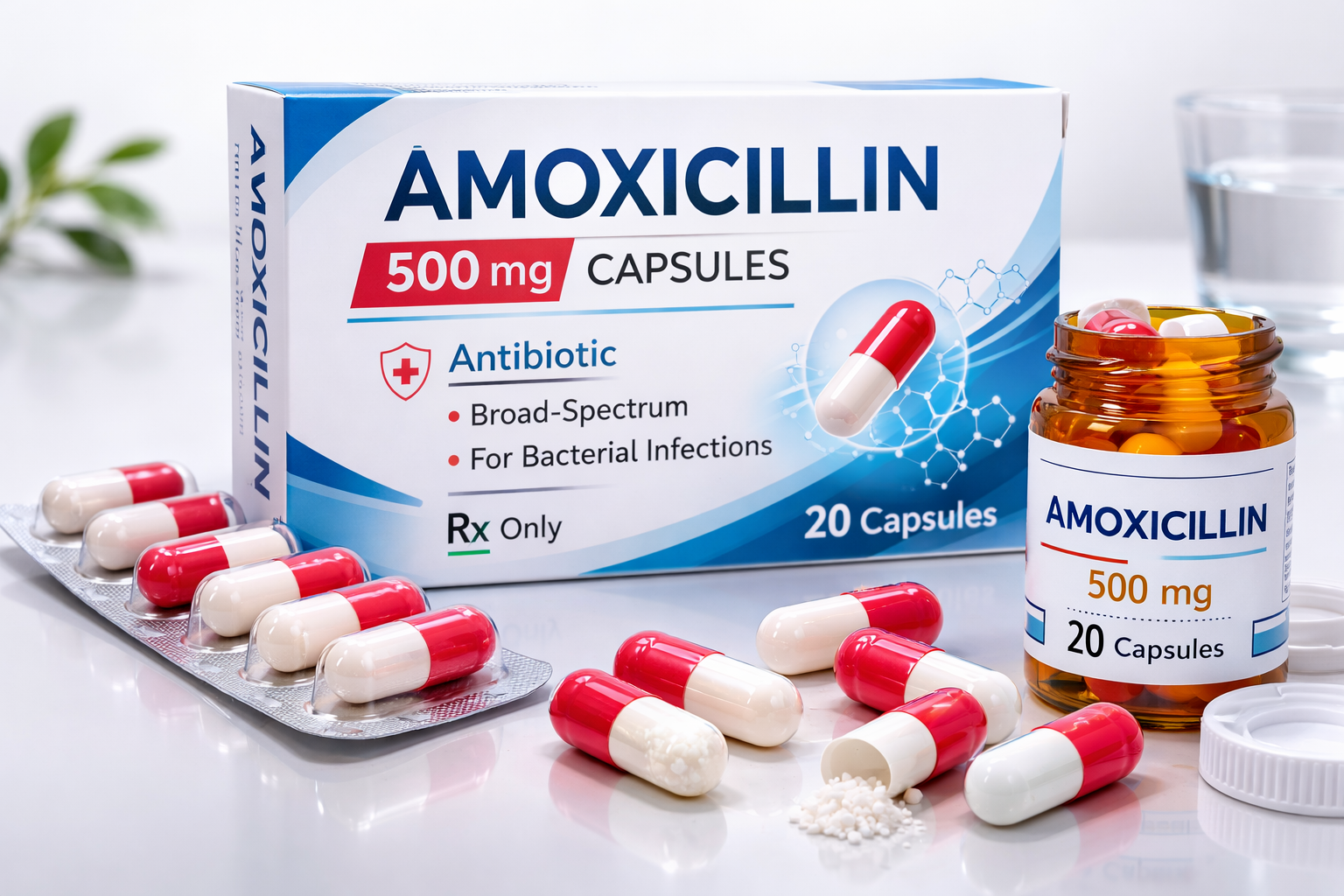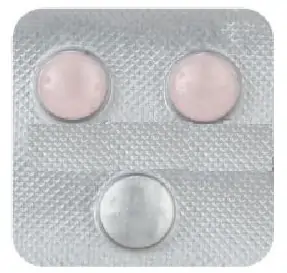Featured This Month

Allergy and Immunology
Does a Humidifier Help With Asthma?
 Simeon
Simeon
 04 Mar 2026
04 Mar 2026
Understanding Asthma and Airway Sensitivity People often ask does a humidifier help with asthma. The answer is not exactly yes or no. It depends on the air around you and how your lungs react to it. Asthma means the airways inside the lungs are sensitive. When something irritates them, they swell and narrow. The muscles around the airways tighten, and mucus can build up. When that happens, breathing can feel tight or heavy. Different things can trigger asthma symptoms. Some common triggers are: Dust and pollen Cigarette smoke Strong perfumes or chemicals Cold air Respiratory infections Very dry air Everyone’s triggers are a little different. For some people, dry air can irritate the throat and airways. That is why people sometimes wonder if a humidifier for asthma relief might help. Asthma management usually includes medication and avoiding triggers. Environmental changes, like adjusting humidity, can sometimes help reduce irritation in the airways. What a Humidifier Does A humidifier is a small device that adds moisture to the air in a room. Indoor air can become very dry, especially during winter. Heating systems remove moisture from the air. When the air gets dry enough, you might notice dry skin, dry throat, or irritated nasal passages. A humidifier releases water vapor into the air, raising the humidity level in the room. Some people feel that breathing becomes easier in slightly moist air. Because of this, many people ask is humidifier good for asthma or can humidifier improve asthma symptoms. The humidifier itself does not treat asthma. It simply changes the moisture level in the air you breathe. How Dry Air Affects Asthma Dry air can irritate the lining of the nose, throat, and airways. For people with asthma, the airways are already sensitive. When dry air passes through them, it can make irritation worse. Some people notice more coughing or throat scratchiness when the air is very dry. Cold winter air is often dry as well. When someone breathes in cold, dry air, the airways may tighten. That tightening can trigger coughing or wheezing. This is why some people begin looking into humidifier benefits for asthma. Moist air sometimes feels easier on irritated airways. However, not everyone with asthma reacts the same way. When a Humidifier May Help Asthma In very dry climates or heated homes during winter, a humidifier may make breathing more comfortable. For example, if someone wakes up with a dry throat or constant coughing caused by dry air, adding a little moisture to the room may help reduce irritation. Some people notice less coughing when the air is not extremely dry. Others say their throat feels less scratchy at night. This is one situation where humidifier vs asthma symptoms may show some improvement. Some people prefer a warm mist humidifier for asthma, especially during cold months. Warm mist can feel soothing to the throat. Others use cool mist models. The important point is that humidifiers may help with dryness, but they do not replace asthma medications. Potential Benefits of Using a Humidifier If used correctly and if the air in the home is very dry, a humidifier can have a few benefits. Possible effects include: Airways may feel less irritated Dry cough may improve Mucus may become thinner and easier to clear When airways are less irritated, breathing may feel more comfortable. That is why some people say they experience humidifier benefits for asthma during winter or in dry indoor environments. Still, the benefit varies. Some people feel no difference at all. When Humidifiers May Worsen Asthma Humidity that is too high can actually make asthma worse. This happens because high humidity encourages things that trigger asthma, such as: Mold growth Dust mites Both of these are common asthma triggers. Another issue is poor humidifier maintenance. If the device is not cleaned regularly, bacteria or mold can grow inside it. When the humidifier runs, those particles can spread into the air. Breathing in contaminated mist can irritate the lungs. Because of this, some homes with high humidity may need the opposite device. That is why people ask is a humidifier or dehumidifier better for asthma. In humid climates, lowering moisture may actually help more. Recommended Humidity Levels The goal is balance. Most experts recommend indoor humidity between 30% and 50%. Below 30% the air may feel dry and irritating. Above 50% the environment becomes ideal for mold and dust mites. A small device called a hygrometer can measure humidity levels in the room. Maintaining the right level helps people searching for the best humidity level for asthma. Tips for Safe Humidifier Use If someone chooses to use a humidifier, a few simple habits can make a big difference. Helpful tips include: Clean the humidifier regularly Change the water every day Use distilled or filtered water when possible Do not run the humidifier continuously without checking humidity levels Standing water inside the tank can allow bacteria or mold to grow. Cleaning prevents that problem. Also, over-humidifying a room can lead to damp air and mold growth. Monitoring humidity helps prevent this. These steps make humidifier for asthma relief safer for people who want to try it. Other Environmental Steps That Help Asthma Humidity is only one small part of asthma management. Other environmental steps often help more. For example: Using HEPA air purifiers to reduce allergens Keeping the home clean to reduce dust Washing bedding regularly Avoiding cigarette smoke Strong fragrances, aerosol sprays, and chemical cleaners can also irritate sensitive lungs. All these factors influence how humidity affects asthma symptoms. When to Seek Medical or Pharmacy Advice Environmental adjustments alone may not control asthma symptoms. Medical advice should be sought if: Wheezing becomes frequent Shortness of breath increases Asthma attacks happen more often Some people ask does using a humidifier help asthma attacks. The answer is no. Asthma attacks require proper medication, usually a rescue inhaler. Sanford Pharmacy can help explain asthma medications, inhaler technique, and ways to manage triggers at home. For many people with asthma, the best approach is a combination of medication, trigger control, and healthy indoor air conditions. Humidity can play a role, but it is only one part of the overall picture.

Analgesics and Anti-inflammatory
What is Best Treatment for Arthritis in Lower Back?
 Myron
Myron
 02 Mar 2026
02 Mar 2026
Understanding Lower Back Arthritis Lower back arthritis is usually “wear and tear” in the joints of the lower spine. Most of the time, it’s osteoarthritis, sometimes mixed with degenerative disc disease. People often imagine one “bad disc,” but a lot of the pain comes from small joints in the back of the spine called facet joints. Those joints are like hinges. They let you bend and twist. Over years, the smooth lining (cartilage) can thin out. When that cushion is thinner, the joint gets irritated more easily. That irritation shows up as stiffness, aching, and sometimes a sharp catch when you move a certain way. So the best treatment for arthritis in lower back is rarely one magic thing. It’s usually a few pieces done consistently: moving more (but the right kind), building support muscles, managing flare-ups, and using medicine carefully when needed. That’s the core of good lower back arthritis treatment. Common symptoms of lower back Arthritis Lower back arthritis tends to feel predictable. Not always, but often. Common symptoms: A dull ache in the low back that sticks around Stiffness when you get out of bed or after sitting Pain that ramps up with prolonged standing, bending, or repeated lifting Feeling “tight” or less flexible through the day Some people feel better once they warm up, then worse again after too much activity Arthritis pain is often worse at the end of a long day. Muscle strain is often worse right after one incident. That difference isn’t perfect, but it helps people understand what’s going on. If pain shoots down the leg, that can still happen with arthritis, but it often means a nerve is irritated too. That’s when you start thinking about a medical evaluation sooner. First-line treatment: lifestyle modifications If you look at how to treat arthritis in lower back, this is where most people start, and honestly where most improvement happens. Weight (if relevant):Extra weight isn’t “the cause” of arthritis, but it does increase load. The lower back is a load-bearing area. Even a small reduction can reduce daily stress on joints. Sitting less, breaking it up:Long sitting compresses the low back and tightens hip flexors. Even if you have a desk job, try a pattern like: stand up every 30–60 minutes walk for 1–2 minutes do a gentle back bend or hip stretch (nothing aggressive) Posture and ergonomics:This doesn’t mean “sit perfectly straight all day.” That’s tiring. It means reduce obvious strain: feet flat screen at eye level lower back supported avoid leaning forward with your head/neck for long periods Daily movement habit:Arthritic joints generally hate two things: too much load, and too much stillness. Gentle movement is like oil for a hinge. You’re trying to keep the hinge moving without forcing it. These are boring steps, but they’re often the foundation of lumbar spine arthritis pain management. Physical Therapy If you want a “superhuman” explanation, here’s the simple truth: the spine is not meant to be held up by bones and joints alone. It’s meant to be supported by muscle. Physical therapy for lumbar arthritis usually targets: Core strength (front and sides of abdomen) Glutes and hips (huge for taking load off the low back) Small stabilizers around the spine Flexibility in hips and hamstrings (tight hips make the low back do extra work) A good PT program isn’t just “do these exercises.” It teaches: How to hinge at the hips instead of rounding the lower back How to get up from a chair without twisting poorly How to lift and carry without loading irritated joints A lot of people feel pain relief from PT not because arthritis disappears, but because the joints are no longer taking the full hit of every movement. Heat and cold therapy These sound too simple, but they help many people. Heat is usually better for stiffness: morning stiffness tight muscles “I feel locked up” Heat relaxes muscle guarding. When your back hurts, muscles tighten to protect you. Heat helps those muscles let go. Cold is often better for flare-ups: after you overdid activity swelling-type soreness hot, irritated feeling If you’re not sure: heat before activity to loosen cold after activity if it’s irritated This fits under natural remedies for lower back arthritis that are safe and practical. Over-the-counter pain relief For many people, OTC options are part of medicine for lower back arthritis, especially during flare days. Acetaminophen can help pain but doesn’t reduce inflammation. It’s sometimes a good first step for mild pain. NSAIDs like ibuprofen or naproxen help pain and inflammation. They can be useful if inflammation is a big part of your flare. Important cautions (because this matters): NSAIDs can irritate the stomach and raise bleeding risk they can affect kidneys they can raise blood pressure in some people they interact with certain blood thinners and other meds Topical gels/creams (like anti-inflammatory gels) can help if pain feels superficial or localized. They won’t “fix” arthritis, but they can take the edge off without as much whole-body exposure. If you’re unsure what is safe with your health conditions and current meds, Sanford Pharmacy can review what you’re taking and help you choose an option that fits your situation. Prescription medications Prescription options vary because not every back pain pattern is the same. Depending on the situation, a clinician might consider: stronger anti-inflammatory meds for a short period muscle relaxants if muscle spasm is a major feature (usually short-term) nerve pain medicines if there’s nerve irritation (more leg symptoms) limited short-term pain meds in select cases (not a long-term plan) Corticosteroid injections can be helpful in certain cases: facet injections (if the facet joints are confirmed pain source) epidural steroid injections (more for nerve irritation) Injections can reduce inflammation and calm a flare, but they don’t rebuild cartilage. They are usually used to create a window where you can move better and build strength. Exercise and movement programs This is where many people either get better or get stuck. Because doing nothing feels safe, but it often makes arthritis worse long term. The best exercises for arthritis in lower back are usually low-impact and repeatable: Walking simple adjustable (10 minutes counts) improves blood flow and keeps joints moving Swimming or water walking water supports body weight movement without heavy load great for people who flare with land exercise Core work (gentle, controlled) dead bug variations bird dog side planks (modified)These teach the trunk to stabilize without forcing painful ranges. Hip and glute strengthening bridges clamshells step-ups (small step)Strong hips reduce how much the low back has to “do everything.” Stretching hip flexor stretch hamstring stretch (gentle) piriformis/hip stretchThis reduces pull on the low back. The key is consistency. Ten minutes daily beats one intense workout once a week. If you want long-term improvement, this is often the biggest part of lower back osteoarthritis treatment. Advanced treatment options If conservative care fails, there are other options. These are typically considered after a solid attempt at PT, exercise, and medication management. Epidural steroid injections (more nerve-related pain) Nerve blocks (can help confirm pain source) Radiofrequency ablation in some cases (targets pain signals from certain facet joints) Surgery is usually not the first answer for arthritis-only pain. It may be considered if there’s a severe structural issue, progressive nerve deficits, or pain that does not respond to well-done conservative care. These fall under lumbar arthritis treatment options beyond the basics. When to seek medical evaluation Get checked sooner (not later) if you have: pain radiating down the leg with numbness or weakness worsening weakness in the foot/leg numbness in the groin/saddle area loss of bladder or bowel control (emergency) fever with back pain, or unexplained weight loss pain after a major fall/trauma Also get evaluated if: symptoms are not improving after a few weeks of consistent conservative care pain is steadily worsening you can’t function day to day Role of ongoing support Most people do best when they treat this like a long-term condition with a plan, not a one-time crisis. Helpful ongoing steps: periodic check-ins with a clinician keeping an exercise routine even when you feel better using meds only as needed and safely learning your flare triggers (standing too long, long car rides, heavy lifting, poor sleep) Sanford Pharmacy can help with: picking an appropriate OTC option (acetaminophen vs NSAID vs topical) checking interactions with your current medicines helping you use pain relief products safely (heat wraps, topical gels, supports)

Bacterial and Fungal Infection
What is Clarithromycin Used For?
 Abril
Abril
 27 Feb 2026
27 Feb 2026
What Clarithromycin is When people ask what is clarithromycin used for, the answer is simple. It is an antibiotic used to treat bacterial infections. Clarithromycin belongs to a group of antibiotics called macrolides. It works differently from penicillin-type antibiotics. Because of that, it is sometimes used when other antibiotics are not suitable. It is available in: Immediate-release tablets Extended-release tablets Oral suspension for children The dose and form depend on the type of infection and the patient’s age. When people search what is clarithromycin used for in adults, it usually relates to respiratory or skin infections. How Clarithromycin Works Clarithromycin stops bacteria from making the proteins they need to grow. Without these proteins, bacteria cannot multiply properly. It does not instantly kill all bacteria. Instead, it slows or stops their growth. This gives the immune system time to clear the infection. It is effective against certain bacteria that cause: Respiratory infections Skin infections Some stomach infections This explains many common clarithromycin antibiotic uses. Respiratory Tract Infections One of the main clarithromycin uses is for respiratory infections. These include: Bronchitis Pneumonia Sinus infections Throat infections Clarithromycin for respiratory infection is often prescribed when bacteria are suspected rather than a virus. For example, clarithromycin uses for sinus infection may apply when symptoms are severe, prolonged, or worsening. It is important to remember that it does not treat viral colds. Ear Infections Clarithromycin may be used for acute otitis media in children. It is usually not the first choice, but it may be used when: The child cannot take penicillin Certain bacteria are suspected Parents often ask clarithromycin treats what infections when it is prescribed for ear pain. The answer depends on whether the infection is bacterial. Skin and Soft Tissue Infections Clarithromycin can treat mild to moderate skin infections. These include: Cellulitis Infected cuts or wounds Certain soft tissue infections This is part of its role as clarithromycin for bacterial infection. Skin infections must be properly evaluated to determine if an antibiotic is needed. Helicobacter pylori (H. pylori) Treatment Clarithromycin is also used in stomach ulcer treatment. It is part of combination therapy to treat H. pylori, a bacteria that can cause ulcers. In this case: It is taken with other antibiotics It is taken with acid-reducing medication It is not used alone for ulcers. The treatment usually lasts a set period based on medical guidelines. Certain Sexually Transmitted Infections In specific cases, clarithromycin may be used for certain infections if directed by a healthcare provider. It is not first-line for all sexually transmitted infections. Use depends on: The type of bacteria Sensitivity testing Medical judgment This is part of answering what infections does clarithromycin treat. Atypical Bacterial Infections Clarithromycin is active against some less common bacteria. Examples include: Mycoplasma pneumoniae Chlamydia pneumoniae Some non-tuberculous mycobacterial infections These are often called atypical infections. Macrolide antibiotics are sometimes chosen for these. When Clarithromycin Is Chosen Doctors may choose clarithromycin when: A patient has a penicillin allergy Bacteria are known to respond to it Culture results suggest susceptibility Dose matters. For example, clarithromycin 500 mg used for more serious infections or certain treatment plans. The clarithromycin dosage and duration for infection depends on the condition being treated. It must be taken exactly as prescribed. What Clarithromycin Does Not Treat Clarithromycin does not treat: Viral infections like colds or flu Fungal infections Bacteria that are resistant to it Using antibiotics for viral infections does not help and may increase resistance. Clarithromycin Side Effects and Uses Like all antibiotics, clarithromycin can cause side effects. Common side effects include: Nausea Diarrhea Metallic taste Less common but more serious side effects include: Heart rhythm changes Severe diarrhea Allergic reactions Understanding clarithromycin side effects and uses helps patients know what to expect. When to Seek Medical or Pharmacy Advice Medical advice should be sought if: Symptoms do not improve within 48 to 72 hours Severe diarrhea develops Irregular heartbeat occurs Rash or swelling appears Questions about clarithromycin dosage and duration for infection or potential drug interactions can be discussed with Sanford Pharmacy. Sanford Pharmacy can provide guidance on safe antibiotic use, timing, possible interactions, and what to do if a dose is missed. Clarithromycin is used for specific bacterial infections. It is not a general treatment for all illnesses. Proper diagnosis and correct dosing are important to ensure the infection is treated effectively and safely.

Does a Humidifier Help With Asthma?
 Simeon
|
Simeon
|
 04 Mar 2026
04 Mar 2026

What is Best Treatment for Arthritis in Lower Back?
 Myron
|
Myron
|
 02 Mar 2026
02 Mar 2026

What is Clarithromycin Used For?
 Abril
|
Abril
|
 27 Feb 2026
27 Feb 2026

How Long Does Premarin Stay in Your System?
 Annalise
|
Annalise
|
 25 Feb 2026
25 Feb 2026

How Long Does Amoxicillin Stay in Your System?
 Graciela
|
Graciela
|
 23 Feb 2026
23 Feb 2026
Recently Posted

Allergy and Immunology
Does a Humidifier Help With Asthma?
 Simeon
Simeon
 04 Mar 2026
04 Mar 2026
Understanding Asthma and Airway Sensitivity People often ask does a humidifier help with asthma. The answer is not exactly yes or no. It depends on the air around you and how your lungs react to it. Asthma means the airways inside the lungs are sensitive. When something irritates them, they swell and narrow. The muscles around the airways tighten, and mucus can build up. When that happens, breathing can feel tight or heavy. Different things can trigger asthma symptoms. Some common triggers are: Dust and pollen Cigarette smoke Strong perfumes or chemicals Cold air Respiratory infections Very dry air Everyone’s triggers are a little different. For some people, dry air can irritate the throat and airways. That is why people sometimes wonder if a humidifier for asthma relief might help. Asthma management usually includes medication and avoiding triggers. Environmental changes, like adjusting humidity, can sometimes help reduce irritation in the airways. What a Humidifier Does A humidifier is a small device that adds moisture to the air in a room. Indoor air can become very dry, especially during winter. Heating systems remove moisture from the air. When the air gets dry enough, you might notice dry skin, dry throat, or irritated nasal passages. A humidifier releases water vapor into the air, raising the humidity level in the room. Some people feel that breathing becomes easier in slightly moist air. Because of this, many people ask is humidifier good for asthma or can humidifier improve asthma symptoms. The humidifier itself does not treat asthma. It simply changes the moisture level in the air you breathe. How Dry Air Affects Asthma Dry air can irritate the lining of the nose, throat, and airways. For people with asthma, the airways are already sensitive. When dry air passes through them, it can make irritation worse. Some people notice more coughing or throat scratchiness when the air is very dry. Cold winter air is often dry as well. When someone breathes in cold, dry air, the airways may tighten. That tightening can trigger coughing or wheezing. This is why some people begin looking into humidifier benefits for asthma. Moist air sometimes feels easier on irritated airways. However, not everyone with asthma reacts the same way. When a Humidifier May Help Asthma In very dry climates or heated homes during winter, a humidifier may make breathing more comfortable. For example, if someone wakes up with a dry throat or constant coughing caused by dry air, adding a little moisture to the room may help reduce irritation. Some people notice less coughing when the air is not extremely dry. Others say their throat feels less scratchy at night. This is one situation where humidifier vs asthma symptoms may show some improvement. Some people prefer a warm mist humidifier for asthma, especially during cold months. Warm mist can feel soothing to the throat. Others use cool mist models. The important point is that humidifiers may help with dryness, but they do not replace asthma medications. Potential Benefits of Using a Humidifier If used correctly and if the air in the home is very dry, a humidifier can have a few benefits. Possible effects include: Airways may feel less irritated Dry cough may improve Mucus may become thinner and easier to clear When airways are less irritated, breathing may feel more comfortable. That is why some people say they experience humidifier benefits for asthma during winter or in dry indoor environments. Still, the benefit varies. Some people feel no difference at all. When Humidifiers May Worsen Asthma Humidity that is too high can actually make asthma worse. This happens because high humidity encourages things that trigger asthma, such as: Mold growth Dust mites Both of these are common asthma triggers. Another issue is poor humidifier maintenance. If the device is not cleaned regularly, bacteria or mold can grow inside it. When the humidifier runs, those particles can spread into the air. Breathing in contaminated mist can irritate the lungs. Because of this, some homes with high humidity may need the opposite device. That is why people ask is a humidifier or dehumidifier better for asthma. In humid climates, lowering moisture may actually help more. Recommended Humidity Levels The goal is balance. Most experts recommend indoor humidity between 30% and 50%. Below 30% the air may feel dry and irritating. Above 50% the environment becomes ideal for mold and dust mites. A small device called a hygrometer can measure humidity levels in the room. Maintaining the right level helps people searching for the best humidity level for asthma. Tips for Safe Humidifier Use If someone chooses to use a humidifier, a few simple habits can make a big difference. Helpful tips include: Clean the humidifier regularly Change the water every day Use distilled or filtered water when possible Do not run the humidifier continuously without checking humidity levels Standing water inside the tank can allow bacteria or mold to grow. Cleaning prevents that problem. Also, over-humidifying a room can lead to damp air and mold growth. Monitoring humidity helps prevent this. These steps make humidifier for asthma relief safer for people who want to try it. Other Environmental Steps That Help Asthma Humidity is only one small part of asthma management. Other environmental steps often help more. For example: Using HEPA air purifiers to reduce allergens Keeping the home clean to reduce dust Washing bedding regularly Avoiding cigarette smoke Strong fragrances, aerosol sprays, and chemical cleaners can also irritate sensitive lungs. All these factors influence how humidity affects asthma symptoms. When to Seek Medical or Pharmacy Advice Environmental adjustments alone may not control asthma symptoms. Medical advice should be sought if: Wheezing becomes frequent Shortness of breath increases Asthma attacks happen more often Some people ask does using a humidifier help asthma attacks. The answer is no. Asthma attacks require proper medication, usually a rescue inhaler. Sanford Pharmacy can help explain asthma medications, inhaler technique, and ways to manage triggers at home. For many people with asthma, the best approach is a combination of medication, trigger control, and healthy indoor air conditions. Humidity can play a role, but it is only one part of the overall picture.

Analgesics and Anti-inflammatory
What is Best Treatment for Arthritis in Lower Back?
 Myron
Myron
 02 Mar 2026
02 Mar 2026
Understanding Lower Back Arthritis Lower back arthritis is usually “wear and tear” in the joints of the lower spine. Most of the time, it’s osteoarthritis, sometimes mixed with degenerative disc disease. People often imagine one “bad disc,” but a lot of the pain comes from small joints in the back of the spine called facet joints. Those joints are like hinges. They let you bend and twist. Over years, the smooth lining (cartilage) can thin out. When that cushion is thinner, the joint gets irritated more easily. That irritation shows up as stiffness, aching, and sometimes a sharp catch when you move a certain way. So the best treatment for arthritis in lower back is rarely one magic thing. It’s usually a few pieces done consistently: moving more (but the right kind), building support muscles, managing flare-ups, and using medicine carefully when needed. That’s the core of good lower back arthritis treatment. Common symptoms of lower back Arthritis Lower back arthritis tends to feel predictable. Not always, but often. Common symptoms: A dull ache in the low back that sticks around Stiffness when you get out of bed or after sitting Pain that ramps up with prolonged standing, bending, or repeated lifting Feeling “tight” or less flexible through the day Some people feel better once they warm up, then worse again after too much activity Arthritis pain is often worse at the end of a long day. Muscle strain is often worse right after one incident. That difference isn’t perfect, but it helps people understand what’s going on. If pain shoots down the leg, that can still happen with arthritis, but it often means a nerve is irritated too. That’s when you start thinking about a medical evaluation sooner. First-line treatment: lifestyle modifications If you look at how to treat arthritis in lower back, this is where most people start, and honestly where most improvement happens. Weight (if relevant):Extra weight isn’t “the cause” of arthritis, but it does increase load. The lower back is a load-bearing area. Even a small reduction can reduce daily stress on joints. Sitting less, breaking it up:Long sitting compresses the low back and tightens hip flexors. Even if you have a desk job, try a pattern like: stand up every 30–60 minutes walk for 1–2 minutes do a gentle back bend or hip stretch (nothing aggressive) Posture and ergonomics:This doesn’t mean “sit perfectly straight all day.” That’s tiring. It means reduce obvious strain: feet flat screen at eye level lower back supported avoid leaning forward with your head/neck for long periods Daily movement habit:Arthritic joints generally hate two things: too much load, and too much stillness. Gentle movement is like oil for a hinge. You’re trying to keep the hinge moving without forcing it. These are boring steps, but they’re often the foundation of lumbar spine arthritis pain management. Physical Therapy If you want a “superhuman” explanation, here’s the simple truth: the spine is not meant to be held up by bones and joints alone. It’s meant to be supported by muscle. Physical therapy for lumbar arthritis usually targets: Core strength (front and sides of abdomen) Glutes and hips (huge for taking load off the low back) Small stabilizers around the spine Flexibility in hips and hamstrings (tight hips make the low back do extra work) A good PT program isn’t just “do these exercises.” It teaches: How to hinge at the hips instead of rounding the lower back How to get up from a chair without twisting poorly How to lift and carry without loading irritated joints A lot of people feel pain relief from PT not because arthritis disappears, but because the joints are no longer taking the full hit of every movement. Heat and cold therapy These sound too simple, but they help many people. Heat is usually better for stiffness: morning stiffness tight muscles “I feel locked up” Heat relaxes muscle guarding. When your back hurts, muscles tighten to protect you. Heat helps those muscles let go. Cold is often better for flare-ups: after you overdid activity swelling-type soreness hot, irritated feeling If you’re not sure: heat before activity to loosen cold after activity if it’s irritated This fits under natural remedies for lower back arthritis that are safe and practical. Over-the-counter pain relief For many people, OTC options are part of medicine for lower back arthritis, especially during flare days. Acetaminophen can help pain but doesn’t reduce inflammation. It’s sometimes a good first step for mild pain. NSAIDs like ibuprofen or naproxen help pain and inflammation. They can be useful if inflammation is a big part of your flare. Important cautions (because this matters): NSAIDs can irritate the stomach and raise bleeding risk they can affect kidneys they can raise blood pressure in some people they interact with certain blood thinners and other meds Topical gels/creams (like anti-inflammatory gels) can help if pain feels superficial or localized. They won’t “fix” arthritis, but they can take the edge off without as much whole-body exposure. If you’re unsure what is safe with your health conditions and current meds, Sanford Pharmacy can review what you’re taking and help you choose an option that fits your situation. Prescription medications Prescription options vary because not every back pain pattern is the same. Depending on the situation, a clinician might consider: stronger anti-inflammatory meds for a short period muscle relaxants if muscle spasm is a major feature (usually short-term) nerve pain medicines if there’s nerve irritation (more leg symptoms) limited short-term pain meds in select cases (not a long-term plan) Corticosteroid injections can be helpful in certain cases: facet injections (if the facet joints are confirmed pain source) epidural steroid injections (more for nerve irritation) Injections can reduce inflammation and calm a flare, but they don’t rebuild cartilage. They are usually used to create a window where you can move better and build strength. Exercise and movement programs This is where many people either get better or get stuck. Because doing nothing feels safe, but it often makes arthritis worse long term. The best exercises for arthritis in lower back are usually low-impact and repeatable: Walking simple adjustable (10 minutes counts) improves blood flow and keeps joints moving Swimming or water walking water supports body weight movement without heavy load great for people who flare with land exercise Core work (gentle, controlled) dead bug variations bird dog side planks (modified)These teach the trunk to stabilize without forcing painful ranges. Hip and glute strengthening bridges clamshells step-ups (small step)Strong hips reduce how much the low back has to “do everything.” Stretching hip flexor stretch hamstring stretch (gentle) piriformis/hip stretchThis reduces pull on the low back. The key is consistency. Ten minutes daily beats one intense workout once a week. If you want long-term improvement, this is often the biggest part of lower back osteoarthritis treatment. Advanced treatment options If conservative care fails, there are other options. These are typically considered after a solid attempt at PT, exercise, and medication management. Epidural steroid injections (more nerve-related pain) Nerve blocks (can help confirm pain source) Radiofrequency ablation in some cases (targets pain signals from certain facet joints) Surgery is usually not the first answer for arthritis-only pain. It may be considered if there’s a severe structural issue, progressive nerve deficits, or pain that does not respond to well-done conservative care. These fall under lumbar arthritis treatment options beyond the basics. When to seek medical evaluation Get checked sooner (not later) if you have: pain radiating down the leg with numbness or weakness worsening weakness in the foot/leg numbness in the groin/saddle area loss of bladder or bowel control (emergency) fever with back pain, or unexplained weight loss pain after a major fall/trauma Also get evaluated if: symptoms are not improving after a few weeks of consistent conservative care pain is steadily worsening you can’t function day to day Role of ongoing support Most people do best when they treat this like a long-term condition with a plan, not a one-time crisis. Helpful ongoing steps: periodic check-ins with a clinician keeping an exercise routine even when you feel better using meds only as needed and safely learning your flare triggers (standing too long, long car rides, heavy lifting, poor sleep) Sanford Pharmacy can help with: picking an appropriate OTC option (acetaminophen vs NSAID vs topical) checking interactions with your current medicines helping you use pain relief products safely (heat wraps, topical gels, supports)

Bacterial and Fungal Infection
What is Clarithromycin Used For?
 Abril
Abril
 27 Feb 2026
27 Feb 2026
What Clarithromycin is When people ask what is clarithromycin used for, the answer is simple. It is an antibiotic used to treat bacterial infections. Clarithromycin belongs to a group of antibiotics called macrolides. It works differently from penicillin-type antibiotics. Because of that, it is sometimes used when other antibiotics are not suitable. It is available in: Immediate-release tablets Extended-release tablets Oral suspension for children The dose and form depend on the type of infection and the patient’s age. When people search what is clarithromycin used for in adults, it usually relates to respiratory or skin infections. How Clarithromycin Works Clarithromycin stops bacteria from making the proteins they need to grow. Without these proteins, bacteria cannot multiply properly. It does not instantly kill all bacteria. Instead, it slows or stops their growth. This gives the immune system time to clear the infection. It is effective against certain bacteria that cause: Respiratory infections Skin infections Some stomach infections This explains many common clarithromycin antibiotic uses. Respiratory Tract Infections One of the main clarithromycin uses is for respiratory infections. These include: Bronchitis Pneumonia Sinus infections Throat infections Clarithromycin for respiratory infection is often prescribed when bacteria are suspected rather than a virus. For example, clarithromycin uses for sinus infection may apply when symptoms are severe, prolonged, or worsening. It is important to remember that it does not treat viral colds. Ear Infections Clarithromycin may be used for acute otitis media in children. It is usually not the first choice, but it may be used when: The child cannot take penicillin Certain bacteria are suspected Parents often ask clarithromycin treats what infections when it is prescribed for ear pain. The answer depends on whether the infection is bacterial. Skin and Soft Tissue Infections Clarithromycin can treat mild to moderate skin infections. These include: Cellulitis Infected cuts or wounds Certain soft tissue infections This is part of its role as clarithromycin for bacterial infection. Skin infections must be properly evaluated to determine if an antibiotic is needed. Helicobacter pylori (H. pylori) Treatment Clarithromycin is also used in stomach ulcer treatment. It is part of combination therapy to treat H. pylori, a bacteria that can cause ulcers. In this case: It is taken with other antibiotics It is taken with acid-reducing medication It is not used alone for ulcers. The treatment usually lasts a set period based on medical guidelines. Certain Sexually Transmitted Infections In specific cases, clarithromycin may be used for certain infections if directed by a healthcare provider. It is not first-line for all sexually transmitted infections. Use depends on: The type of bacteria Sensitivity testing Medical judgment This is part of answering what infections does clarithromycin treat. Atypical Bacterial Infections Clarithromycin is active against some less common bacteria. Examples include: Mycoplasma pneumoniae Chlamydia pneumoniae Some non-tuberculous mycobacterial infections These are often called atypical infections. Macrolide antibiotics are sometimes chosen for these. When Clarithromycin Is Chosen Doctors may choose clarithromycin when: A patient has a penicillin allergy Bacteria are known to respond to it Culture results suggest susceptibility Dose matters. For example, clarithromycin 500 mg used for more serious infections or certain treatment plans. The clarithromycin dosage and duration for infection depends on the condition being treated. It must be taken exactly as prescribed. What Clarithromycin Does Not Treat Clarithromycin does not treat: Viral infections like colds or flu Fungal infections Bacteria that are resistant to it Using antibiotics for viral infections does not help and may increase resistance. Clarithromycin Side Effects and Uses Like all antibiotics, clarithromycin can cause side effects. Common side effects include: Nausea Diarrhea Metallic taste Less common but more serious side effects include: Heart rhythm changes Severe diarrhea Allergic reactions Understanding clarithromycin side effects and uses helps patients know what to expect. When to Seek Medical or Pharmacy Advice Medical advice should be sought if: Symptoms do not improve within 48 to 72 hours Severe diarrhea develops Irregular heartbeat occurs Rash or swelling appears Questions about clarithromycin dosage and duration for infection or potential drug interactions can be discussed with Sanford Pharmacy. Sanford Pharmacy can provide guidance on safe antibiotic use, timing, possible interactions, and what to do if a dose is missed. Clarithromycin is used for specific bacterial infections. It is not a general treatment for all illnesses. Proper diagnosis and correct dosing are important to ensure the infection is treated effectively and safely.

Women’s Health
How Long Does Premarin Stay in Your System?
 Annalise
Annalise
 25 Feb 2026
25 Feb 2026
What Premarin Is and Why It Is Prescribed How long does Premarin stay in your system is a common question, especially when someone is planning to stop hormone therapy. The short answer is that most of the medication leaves the bloodstream within a few days, but the body’s hormonal effects may last longer. Premarin is a form of conjugated estrogens. It is a type of hormone therapy. It is most often prescribed for menopausal symptoms such as hot flashes, night sweats, and vaginal dryness. It may also be used for certain hormonal deficiencies or after surgical removal of the ovaries. Premarin is available in several forms: Oral tablets Vaginal cream Injectable forms in specific situations The way it is taken affects premarin duration in body and overall hormone levels. How Premarin Works in the Body Premarin supplements or replaces estrogen levels in the body. During menopause, estrogen production decreases. This can lead to symptoms that affect comfort and quality of life. Estrogen affects many tissues, including: Reproductive organs Bones Brain Blood vessels The effects of Premarin depend on: Dose How long it is used Route of administration This is part of understanding premarin metabolism and how it behaves in the body. Half-Life of Premarin Premarin contains multiple estrogen compounds. Each one has a slightly different half-life. The average effective premarin half life is about 12 to 24 hours. Half-life means the time it takes for half of the drug to leave the bloodstream. Because it contains several estrogen forms, overall activity can vary slightly between individuals. Some metabolites may remain active longer than others. When discussing premarin half life in postmenopausal women, the general range is similar, though metabolism can vary with age. How Long Premarin Stays in Your System Most circulating estrogen levels decline within 1 to 3 days after stopping oral therapy. So, how long does premarin stay in your system after stopping? In most healthy individuals: Blood levels drop significantly within a few days Small amounts of metabolites may remain for several more days Nearly all of the drug is cleared within several days, though exact timing varies. If asking how long does premarin take to leave your body completely, the answer is usually within a few days for the drug itself, assuming normal liver function. Vaginal forms typically have lower systemic absorption. They generally clear faster from the bloodstream. How the Body Eliminates Premarin Premarin is metabolized primarily by the liver. After processing, estrogen metabolites are excreted through: Urine Bile Some estrogen undergoes enterohepatic recycling. This means it can be reabsorbed from the intestines before being fully eliminated. This can slightly prolong premarin clearance time, but usually not for an extended period. When people ask how long does estrogen stay in your system, it depends on the specific form and the individual’s metabolism. Factors That Affect Clearance Time Several factors influence premarin elimination time: Dose strength Duration of therapy Liver function Age Overall metabolic rate Oral versus vaginal use Higher doses or long-term use may result in slightly longer clearance. Individuals with liver impairment may experience slower premarin clearance time. Difference Between Drug Clearance and Hormonal Effects This is an important point. The medication may leave the bloodstream within days. However, hormonal effects may last longer. After stopping: Hot flashes may gradually return Vaginal dryness may slowly reappear Mood changes may occur temporarily This does not mean the drug is still active in high levels. It means the body is adjusting. So, how long does premarin last in the body can mean two different things: How long the drug is measurable How long the hormonal effects are felt The drug clears first. Symptoms may change gradually afterward. Side Effects After Stopping Premarin Some side effects improve quickly after stopping. These may include: Breast tenderness Mild bloating Fluid retention These often resolve within several days as estrogen levels decline. Hormonal fluctuations can cause temporary symptoms during adjustment. Persistent or severe symptoms should be evaluated by a healthcare provider. Special Considerations Long-term hormone therapy should not be stopped abruptly without discussion in some cases. Some individuals may be advised to taper gradually. This can reduce sudden hormonal shifts. Response varies. Some people notice quick changes. Others adjust slowly. Questions about how long does premarin stay in urine for drug test are uncommon in medical practice, as Premarin is not typically screened in routine drug testing. When present in urine, estrogen metabolites generally clear within several days after stopping. When to Seek Medical or Pharmacy Guidance Medical or pharmacy advice should be sought if: There are questions about stopping hormone therapy Side effects continue after discontinuation Symptoms return suddenly or severely Sanford Pharmacy can help answer questions about how long does premarin stay in your system, safe discontinuation, hormone therapy duration, and proper use. Understanding premarin duration in body helps set realistic expectations. In most healthy individuals, the medication itself clears within a few days. Hormonal effects may take longer to adjust as the body rebalances.

Bacterial and Fungal Infection
How Long Does Amoxicillin Stay in Your System?
 Graciela
Graciela
 23 Feb 2026
23 Feb 2026
What Amoxicillin Is and How It Works how long does amoxicillin stay in your system is easier to understand if you first know what the medicine is doing. Amoxicillin is a penicillin-type antibiotic. It is used to treat bacterial infections. It does not treat viral infections like colds or flu. Doctors commonly prescribe it for: Ear infections Strep throat Sinus infections Skin infections Some urinary tract infections Amoxicillin works by stopping bacteria from building their protective outer wall. Bacteria need that wall to survive. Without it, they weaken and die. It starts working soon after you take it. But how long it stays in the body is a separate question. Half-Life of Amoxicillin To understand amoxicillin half life, it helps to know what half-life means. Half-life is the time it takes for half of the drug to leave your bloodstream. For most healthy adults, the average half-life of amoxicillin is about 1 to 1.5 hours. That means: After about 1–1.5 hours, half of the dose is gone After another 1–1.5 hours, half of the remaining amount is gone It usually takes several half-lives for a drug to fully clear from the body. This is part of normal amoxicillin pharmacokinetics. How Long Amoxicillin Stays in Your System Most people want a direct answer to how long does amoxicillin stay in your system. After a single dose: Most of the drug is cleared within 8–12 hours Nearly all is eliminated within 24 hours in healthy adults So, how long does amoxicillin last in the body? In general, not very long. It does not stay for multiple days after one dose. However, during regular dosing, levels are maintained by taking the medicine every 8 or 12 hours. Once you stop, clearance begins quickly. When people ask how long is amoxicillin in your bloodstream, the answer is usually less than a day after the final dose for healthy individuals. How the Body Eliminates Amoxicillin Amoxicillin is not heavily broken down by the liver. Instead, it is mostly removed unchanged through the kidneys. It leaves the body in urine. That is why kidney function is important when talking about amoxicillin elimination time. In healthy kidneys: The drug moves through the bloodstream It is filtered out It exits in urine If kidney function is good, amoxicillin clearance time is fast. Factors That Affect Clearance Time Not everyone clears amoxicillin at the same speed. Factors that affect amoxicillin duration in body include: Kidney function Age Dosage How often the drug is taken Type of formulation (extended-release vs immediate-release) Infants and older adults may clear it more slowly. People with kidney problems may have longer amoxicillin elimination time because the kidneys are responsible for removing it. Does Amoxicillin Build Up in the Body With repeated dosing, small amounts can accumulate slightly. This is normal. When taken as prescribed: Drug levels stay steady Each new dose replaces what was cleared Once the final dose is taken, levels drop quickly. So while steady dosing maintains levels, amoxicillin does not stay in the body long after stopping. How Long Side Effects May Last Side effects are separate from how long the drug is present. Mild side effects like: Nausea Diarrhea Stomach discomfort Often improve within 1–2 days after stopping the medicine. Gastrointestinal upset can linger briefly because the gut bacteria need time to rebalance. Severe allergic reactions, such as rash or swelling, require immediate medical attention and are not related to normal amoxicillin metabolism timing. Amoxicillin and Alcohol There is no strong direct interaction between amoxicillin and alcohol. However: Alcohol can worsen stomach upset Alcohol may slow recovery from infection It is generally best to limit alcohol until feeling better. Waiting 24 hours after the last dose ensures the drug has cleared the bloodstream in healthy adults. Special Considerations for Kidney Problems If someone has reduced kidney function, amoxicillin clearance time may be slower. In these cases: Doses may be adjusted Dosing intervals may be changed Monitoring may be needed Because amoxicillin leaves mostly through urine, kidney health directly affects how long amoxicillin is in your bloodstream. Amoxicillin in Urine Some people ask about amoxicillin how long in urine. Because the drug is excreted through urine: It can be detected in urine for several hours after dosing In healthy individuals, it is usually gone within 24 hours after the final dose Testing is rarely needed in normal treatment. When to Seek Medical or Pharmacy Advice Medical advice should be sought if: Symptoms persist after completing treatment Severe diarrhea develops A rash or allergic symptoms appear Questions about how long does amoxicillin stay in your system, dosing schedules, or side effects can be discussed with Sanford Pharmacy. Sanford Pharmacy can help explain medication timing, safe use, and what to expect after finishing a course. Key Points to Remember amoxicillin half life is about 1–1.5 hours Most of the drug clears within 8–12 hours Nearly all is eliminated within 24 hours in healthy adults Kidneys play the main role in amoxicillin metabolism and clearance Side effects may last slightly longer than the drug itself Amoxicillin works quickly and clears quickly. In healthy individuals, it does not remain in the body for days after stopping. Understanding this helps set expectations about recovery and medication timing.

Pediatric and Neonatal Care
Can Newborns Get Infections from Visitors?
 Tobias
Tobias
 18 Feb 2026
18 Feb 2026
Understanding Newborn Immune Systems Yes, newborns can get infections from visitors. That is not meant to create fear, but it is something parents should understand clearly. A newborn’s immune system is still developing. It is not weak in a broken way, but it is immature. It has not had time to learn how to respond to many germs. During pregnancy, some antibodies pass from mother to baby. That gives some early protection. But after birth, the baby has to start building its own defenses. That takes time. Weeks and months. Newborns also have not been exposed to common viruses yet. Older children and adults have already been sick many times. Their immune systems remember those infections. A newborn does not have that memory yet. Premature babies may be even more vulnerable. If they were born early, they may not have received as many protective antibodies before birth. Their lungs may also be smaller and more sensitive. In these cases, the newborn's immune system and visitors become an even more serious discussion. How Infections Spread to Newborns Infections spread in simple ways. It does not require obvious illness. Respiratory droplets are the most common route. When someone coughs, sneezes, laughs closely, or even talks near a baby, tiny droplets can spread viruses. If the visitor has a cold, flu, RSV, or COVID-19, the baby can be exposed. Direct contact is another common way. Kissing a newborn on the face or hands can pass viruses. Adults often do this without thinking. It feels natural. But it increases newborn exposure to germs. Hands are another major source. Someone may feel completely healthy but still carry viruses on their hands. If they touch their face and then hold the baby, germs can transfer. Clothing can also carry germs from public spaces. It does not mean visitors are careless. It simply means germs are common. So when parents ask, can babies catch infections from guests, the answer is yes. It can happen easily. Common Infections Visitors May Transmit Several infections are especially concerning in newborns. Colds are common in adults and older children. For them, it may mean a runny nose. For a newborn, it can mean feeding problems and breathing difficulty. Influenza is more serious. newborn flu risk from visitors increases during flu season. A newborn with flu may develop high fever and dehydration quickly. RSV is another concern. It spreads easily. In newborns, it can cause fast breathing and hospital stays. COVID-19 can also spread through close contact. Even mild symptoms in adults can be more serious in a newborn. Cold sores are another risk. Herpes simplex virus can be transmitted through kissing. For adults, a cold sore is often minor. For a newborn, it can be dangerous. This is why many families set clear visitor rules for newborn baby in the early weeks. Why Newborns Are More Vulnerable Newborns are small, but the issue is not just size. Their immune response is slower. When a virus enters the body, it may take longer for the newborn to respond effectively. Their airways are small. Even minor swelling can make breathing harder. A little mucus can cause noticeable congestion. Their lungs are still developing. Oxygen exchange is not as strong as in older children. Because of this, something that feels minor to an adult can feel much larger in a newborn. Parents often ask, can newborn get sick from family members? Yes. Even family members who love and care deeply can unintentionally pass germs. Signs of Infection in a Newborn It is important to know warning signs. A fever of 100.4°F (38°C) or higher in a newborn requires immediate medical attention. This is not optional. Any fever at this age should be evaluated quickly. Other signs include: Poor feeding Refusing to nurse or take a bottle Unusual sleepiness Difficulty waking Fast or labored breathing Persistent crying that feels different If something feels off, it is better to call a pediatrician than to wait. How to Reduce Risk From Visitors There are practical ways to reduce newborn infection risk from visitors without isolating completely. Families often choose to: Ask anyone who feels sick to postpone their visit Require handwashing before holding the baby Avoid kissing the baby, especially on the face or hands Keep early visits short These steps are simple. They do not remove all risk, but they lower it. It can feel uncomfortable to ask visitors to wash hands or avoid kissing. But protecting the newborn comes first. Vaccination and Protection Adults who will spend time around the baby should be up to date on certain vaccines. Flu vaccine helps reduce newborn flu risk from visitors. Tdap vaccine protects against whooping cough, which can be very serious in infants. Following the baby’s recommended vaccine schedule is also important as they grow. Timing visits during peak illness seasons is something many families consider. During winter months, some families limit visitors more strictly. Special Precautions for Premature or Medically Fragile Infants For premature babies, extra care is often needed. Families may: Limit visitors to immediate household members Avoid crowded gatherings Screen visitors carefully A pediatrician can provide guidance specific to the baby’s health. In these cases, how to protect newborn from infections may involve stricter boundaries. Balancing Social Support and Safety New parents need support. Meals, help with chores, and emotional support matter. At the same time, safety matters too. Some families use: Short visits Outdoor visits when possible Virtual video calls in the first weeks As the baby grows, exposure can slowly increase. The immune system becomes stronger with time. When to Seek Medical Care Immediate care is needed for: Fever Breathing difficulty Poor feeding Unusual behavior Newborn infections can progress quickly. Early evaluation is important. Sanford Pharmacy can help families choose thermometers, hand hygiene products, and basic infection prevention supplies. For symptoms or illness, medical care should always be guided by a pediatrician. Newborns can get infections from visitors. That is a reality. It does not mean fear should control everything. It means awareness and simple precautions matter. Setting boundaries early is not overreacting. It is part of responsible care. With careful planning and clear communication, families can reduce risk while still receiving support during the first weeks of life.
Popular Medicines





.webp)
.webp)
-(2).webp)

.webp)
.webp)
.webp)
.webp)
_1.webp)

-(1).webp)
.webp)
.webp)










